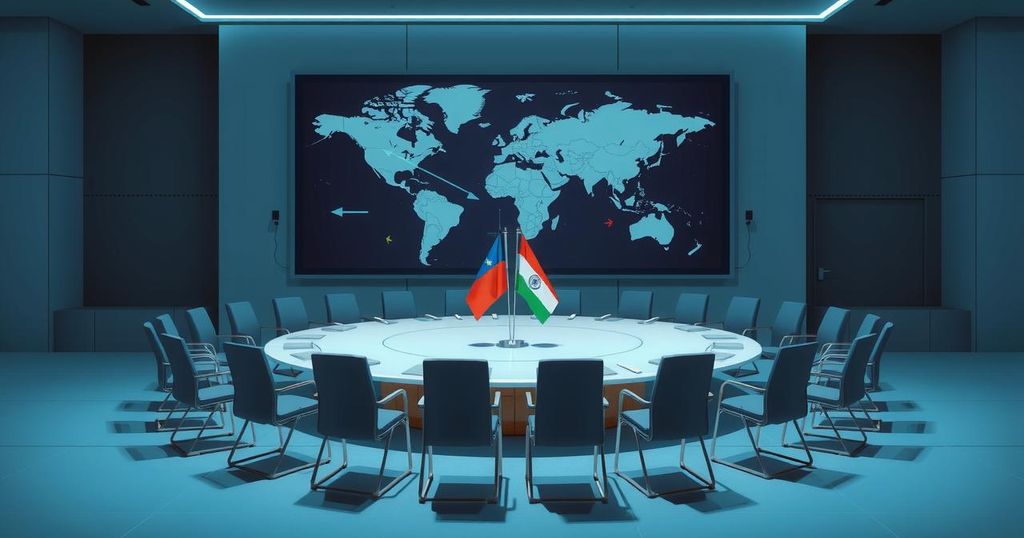U.S. President Trump warned Iran of severe consequences if Houthi attacks on international shipping do not cease. Following strikes on Yemen, Houthis targeted a U.S. aircraft carrier. The Pentagon has intensified military operations with extensive strikes in Yemen, while Iran’s envoy denied provocative actions. The conflict escalates amid geopolitical tensions and ongoing Houthi threats.
In a recent statement, U.S. President Donald Trump issued a warning to Iran regarding the continued attacks by Yemen’s Houthi movement on international shipping lanes. Trump asserted that Iran would be held responsible for all actions taken by the Houthis, whom he accused of being Tehran’s proxies in the conflict. This warning follows a series of attacks by the Houthis against a U.S. aircraft carrier in the Red Sea, which coincided with U.S. military strikes in Yemen that reportedly killed numerous individuals, including civilians.
The U.S. military has initiated a significant operation against the Houthis, marking one of the largest military actions in the Middle East since Trump’s return to office. Reports indicate that the Pentagon has undertaken attacks on approximately 30 targets within Yemen, with precautions taken to minimize civilian casualties. Pentagon officials have noted that the scope of these strikes is broader compared to those authorized by former President Joe Biden.
Trump conveyed through his Truth Social platform that every Houthi attack would be considered as a direct assault afforded by Iranian resources and leadership, further declaring that Iran would face severe consequences. Despite the accusations from the U.S., Iran’s U.N. envoy has rejected claims of supplying weapons to the Houthis, labeling them as unsubstantiated and emphasizing that Tehran does not engage in destabilizing actions.
New military actions saw the U.S. intercepting Houthi missiles and drones aimed at the USS Harry S Truman aircraft carrier. While the Houthis claimed that U.S. air strikes resulted in civilian casualties, the U.S. government reported no credible evidence of such incidents. The rebellious Houthi movement has threatened to continue targeting Red Sea shipping until specific political demands are met, specifically the lifting of Israel’s blockade of Gaza.
Since late November 2023, the Houthis have been increasingly aggressive, launching attacks on merchant vessels in the Red Sea and Gulf of Aden, with notable incidents resulting in the sinking of ships and loss of life among crews. Despite controlling pivotal areas of Yemen, the Houthis do not represent the internationally recognized government of the country, creating a complex geopolitical situation.
In summary, President Trump’s warnings to Iran signal a pivotal moment in U.S.-Iran relations concerning the Houthis’ aggressive actions in the Red Sea. Trump’s assertion of Iran’s accountability for Houthi attacks introduces potential escalations in military operations. Concurrently, Iran has denied involvement in these actions, challenging the basis of U.S. claims. The unfolding situation underscores the intensifying military engagement in the region and highlights the complexities of the ongoing conflict in Yemen.
Original Source: www.bbc.com




